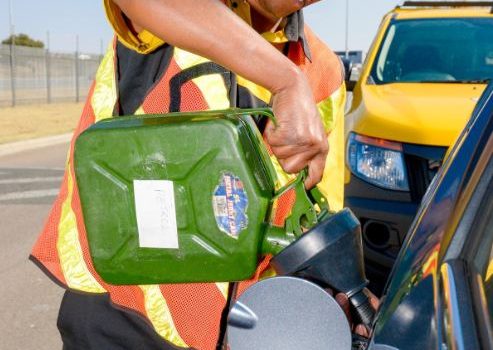How honest is your car’s fuel consumption?
– This week’s petrol price increase might get car owners taking a serious look at their fuel consumption. However, your idea of how much fuel your car uses might be way off the mark.
This is according to Wesley Procter, general manager at used car retailer getWorth, who says that when it comes to fuel consumption, there are three versions of the truth – namely what the manufacturer claims, what your car’s instruments tell you, and how much fuel your car actually uses in real life.
“It is very common to find that the amount of fuel you’re actually using is significantly different than your car’s manufacturer-claimed consumption,” he explains.
He goes on to say that the issue is partly technical because it is difficult for a laboratory test to replicate real-world driving conditions.
However, Procter says that the manufacturers also have huge incentives to declare as low consumption as possible. “The Volkswagen diesel emissions scandal has shown that measurement methods can be gamed,” he says.
“With the fuel consumption test, there’s no need to break the rules to achieve an edge – the engineers know the specific parameters and can optimise the car’s design to score well under those specific conditions. Move out the specific conditions of the lab test, and fuel consumption quickly deteriorates.”
He says that the UK website HonestJohn gathers actual fuel consumption measurements from a community of thousands of users and compares them to claimed values.
“They gathered the data for hundreds of different models and found that the average car uses 20% more fuel than its claimed consumption which is pretty dismal,” Procter adds.
Other studies concur. He says that the Automobile Association of Australia recently commissioned independent real-world tests and found a similar result. “It reported that the cars tested used 23% more fuel than the claimed consumption and one car used a staggering 59% more.”
As for the fuel consumption claimed by your car’s instruments, he says that this might also be far off the mark. “A car’s fuel computer is one of its least accurate accessories because there are considerable engineering challenges to measuring fuel consumption in real time.”
Having said this, Procter says that it is not difficult to test how much fuel your car actually uses in real-world conditions.
Here’s how:
• Run your fuel down until your tank is half-full or less.
• Then fill up your tank to the brim and re-set your fuel counter and odometer (or write down your mileage).
• Drive until your tank is again less than half-full and fill it to the brim again. Now you know how many litres you’ve used and how many kilometres you’ve travelled.
• Divide the litres by the kilometres, multiply by 100, and you have litres per 100km.
• Now compare that to what your car’s instruments measured for that same distance and what your car’s claimed consumption is.
“It’s best to repeat this exercise several times to even out the measurements,” he advises. “You may be surprised at how large the difference is. And naturally, the actual consumption is typically higher than what the manufacturer or your instruments claimed.”
Fortunately, there is light at the end of the tunnel. “Official testing methods are changing and hopefully the new crop of tests gives more realistic results,” he says. “But as long as there are tests, there will be gaming.”
For more information or useful tips visit: www.getworth.co.za
Related Posts
« Was your information leaked when you paid traffic fines online? Drivers tested in slippery conditions at Engen Polo Cup races at the Aldo Scribante circuit near Port Elizabeth »
























